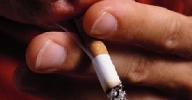|
|
 Acne (1,500) Acne (1,500)
 Addictions (1,500) Addictions (1,500)
 Advice (1,500) Advice (1,500)
 Allergies (1,092) Allergies (1,092)
 Alternative Medicine (1,500) Alternative Medicine (1,500)
 Anti Aging (1,500) Anti Aging (1,500)
 Breakup (1,500) Breakup (1,500)
 Cancer (1,499) Cancer (1,499)
 Dental Care (1,500) Dental Care (1,500)
 Disabilities (1,500) Disabilities (1,500)
 Divorce (1,500) Divorce (1,500)
 Elderly Care (1,498) Elderly Care (1,498)
 Goal Setting (1,500) Goal Setting (1,500)
 Hair Loss (1,500) Hair Loss (1,500)
 Health and Safety (1,497) Health and Safety (1,497)
 Hearing (1,500) Hearing (1,500)
 Law of Attraction (1,499) Law of Attraction (1,499)
 Marriage (1,500) Marriage (1,500)
 Medicine (1,497) Medicine (1,497)
 Meditation (1,499) Meditation (1,499)
 Men's Health (1,500) Men's Health (1,500)
 Mental Health (1,500) Mental Health (1,500)
 Motivational (1,500) Motivational (1,500)
 Nutrition (1,495) Nutrition (1,495)
 Personal Injury (1,499) Personal Injury (1,499)
 Plastic Surgeries (1,500) Plastic Surgeries (1,500)
 Pregnancy (1,496) Pregnancy (1,496)
 Psychology (1,500) Psychology (1,500)
 Public Speaking (1,500) Public Speaking (1,500)
 Quit Smoking (1,500) Quit Smoking (1,500)
 Religion (1,499) Religion (1,499)
 Self Help (1,500) Self Help (1,500)
 Skin Care (1,500) Skin Care (1,500)
 Sleep (1,500) Sleep (1,500)
 Stress Management (1,500) Stress Management (1,500)
 Teenagers (1,492) Teenagers (1,492)
 Time Management (1,500) Time Management (1,500)
 Weddings (1,500) Weddings (1,500)
 Wellness (1,500) Wellness (1,500)
 Women's Health (1,500) Women's Health (1,500)
 Women's Issues (1,500) Women's Issues (1,500)
|
Tarsal tunnel syndrome is condition where the posterior tibial nerve in the ankle is compressed. In many ways, this condition is analogous to carpal tunnel syndrome in the hand where the median nerve is compressed.
With tarsal tunnel syndrome, compression of the tibial nerve occurs within a tunnel created by a floor consisting of the calcaneus (heel bone) and bounded by the medial malleolus- the bump on the inside part of the ankle- and the far corner of the heel bone. The roof of the tarsal tunnel is formed by a retinaculum- a tough piece of fibrous tissue.
Within the tarsal tunnel run a number of tendons (posterior tibial tendon flexor digitorum tendon, and flexor hallucis tendon) as well as the posterior tibial nerve, and the posterior tibial artery.
Many people with tarsal tunnel syndrome may have compression of nerves elsewhere. An example would be a patient who has a pinched nerve in the low back along with tarsal tunnel syndrome. This condition, where there is compression at least two locations, is termed "double-crush" syndrome.
Another problem is that many people who have tarsal tunnel syndrome may have peripheral neuropathy. This is a condition where there is damage to the small nerves in the feet. Numbness and tingling are common symptoms. Among the diseases associated with peripheral neuropathy are diabetes and hypothyroidism.
Medications can also cause a peripheral neuropathy. These include colchicine given for gout, nitrous oxide (an anesthetic), metronidazole (Flagyl- an antibiotic), phenytoin (Dilantin- an anti-seizure medicine), lithium (given for manic depression), disulfiram (Antabuse- given for alcohol addiction), cimetidine (Tagamet- given for peptic ulcer disease), hydroxychloroquine (Plaquenil- given for autoimmune disorders), amitriptyline (Elavil- an antidepressant), and various chemotherapy agents given for cancer.
Excessive alcohol and tobacco use as well as nutritional deficiencies can cause peripheral neuropathy as can exposure to heavy metals. Infectious diseases such as Lyme disease, leprosy, and HIV infection can also lead to peripheral neuropathy.
The most common symptom of tarsal tunnel syndrome is foot pain, which can also be accompanied by numbness and tingling.
Tapping on the tibial nerve at the tarsal tunnel may cause pain and tingling to occur. This is called a positive Tinel's sign and is clinical evidence of tarsal tunnel syndrome.
The clinical impression can be confirmed with electrical testing (electromyography and nerve conduction). Electrical testing is important to evaluate the patient for other nerve entrapment problems such as a pinched nerve in the back. Peripheral neuropathy can also be diagnosed.
The posterior tibial nerve divides into three branches that include the calcaneal, medial plantar, and lateral plantar nerve branches, all of which innervate different parts of the foot and ankle.
Magnetic resonance imaging (MRI) and ultrasonography may be useful in evaluating a patient for underlying reasons for tarsal tunnel syndrome.
Medical therapy for tarsal tunnel syndrome may start with local injection of steroids into the tarsal tunnel. Physical therapy may be of some value in reducing soft-tissue edema which can ease pressure on the compartment.
Splints and braces may be helpful for patients who have anatomic abnormalities in the hindfoot and ankle.
When conservative therapy fails to help the patient's symptoms, surgical intervention may be warranted.
More recently, the use of a percutaneous ultrasound guided needle release technique has been found to be effective. With this procedure, which is done using local anesthetic, the retinaculum is pierced several times with a small needle while injecting small amounts of fluid at the same time. In essence, the retinaculum is shredded to relieve pressure in the tarsal tunnel. Recovery time is limited to about one day compared with the weeks to months that can accompany open surgery.
When a patient doesn't improve and has persistent pain, associated plantar fasciitis may be a cause of persistent pain in the medial heel region after surgery or percutaneous needle release.
Complete relief of symptoms may not be possible because tarsal tunnel syndrome has many causes and because the likelihood of irreversible nerve damage exists. An increase in pain after decompression either by needle release or by open surgery is extremely rare.
|
|
|



